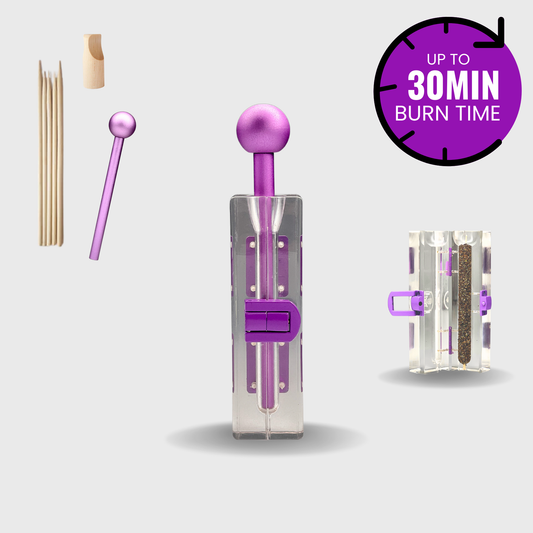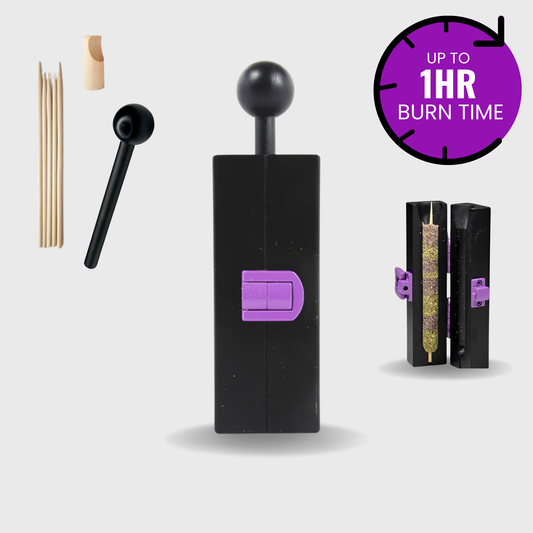⬇️ Prefer to listen instead? ⬇️
- Cannabinoids like THC and CBD interact with the body’s endocannabinoid system to regulate inflammation, sleep, and immune response.
- A 2009 study found CBD has immune-modulating and anti-inflammatory properties that can aid during sickness.
- Smoking cannabis when sick can increase throat and lung irritation, making edibles a better alternative.
- Elderberry in edibles may shorten cold durations according to clinical research.
- Edibles infused with THC and adaptogens like ashwagandha can significantly support restorative sleep during illness.
Congestion, sore throat, and sleepless nights—catching a cold can throw everything off track. While traditional remedies like tea, rest, and over-the-counter meds still work for many, more people are now trying cannabis edibles—especially THC gummies and CBD for cold relief—to help with symptoms, lower inflammation, and get better rest. This helps without irritating the lungs like smoking does.

Why Smoking Isn’t Ideal When You’re Sick
Cold and flu season hits your respiratory system hard. When your sinuses are inflamed and your throat feels raw and scratchy, the last thing your body needs is further irritation. Smoking cannabis, though a popular consumption method, creates heat and combustion that can worsen respiratory symptoms. Even vapes—although slightly gentler than combustion—introduce particles into the respiratory tract that may still cause irritation.
When you're sick, preserving your ability to breathe easily is key. Cannabis edibles like THC or CBD-infused gummies completely bypass the lungs, entering instead through the digestive system, where the active compounds are metabolized by the liver. This not only avoids irritating your lungs but also makes the effects last longer. And that makes edibles a good way to manage symptoms all day or night.

How Cannabis Interacts with the Body When You’re Sick
Cannabis offers therapeutic effects largely through its interaction with the endocannabinoid system (ECS). This complex network of receptors (namely CB1 and CB2) and signaling molecules helps regulate various bodily functions, including
- Immune response
- Sleep cycles
- Pain perception
- Appetite
- Mood
- Inflammation
Both THC (tetrahydrocannabinol) and CBD (cannabidiol) engage with the ECS, but they affect the body in different ways. THC is known for its psychoactive effect, offering potent relief for pain and insomnia. CBD, on the other hand, is non-intoxicating but has powerful anti-inflammatory and immune-modulating properties.
According to a study by Nagarkatti et al. (2009), "CBD has been shown to modulate the immune system through several pathways, including suppression of cytokine production, induction of T-regulatory cells, and overall inflammation reduction." These effects suggest that CBD for cold relief not only helps with symptoms like inflammation and sore throat but might also help the body recover.
At the same time, THC can help reduce discomfort, particularly muscle and sinus pain, while promoting sleep—which is crucial for immune function and recovery.

THC vs. CBD: Which Is Better for Cold Relief?
When it comes to choosing between THC and CBD for symptom relief during a cold, the best choice depends on the symptoms you're trying to treat.
THC Benefits
- Helps reduce pain and discomfort from sinus pressure, headaches, and body aches.
- Encourages restful, deeper sleep, even when congestion or coughing interrupts your rest.
- Induces a sense of relaxation, useful if cold symptoms are also triggering anxiety or tension.
CBD Benefits
- Reduces inflammation systemically, which can soothe an irritated throat and aching joints.
- Modulates the immune system, potentially helping to balance overactive responses.
- Offers calming effects without intoxication, so you can function during the day.
Best of Both: Balanced Ratios
For those looking to maximize the benefits, a 1:1 THC:CBD ratio can often be the most effective way to manage pain, ease inflammation, and improve sleep without becoming overly impaired. Many cannabis edibles made for wellness already have these balanced ratios to give the best relief.
Ache Relief: Try Ache Away Eddies
Aches and pains are one of the most exhausting symptoms of a cold or flu-like illness. When your body feels like it’s been trampled, Betty’s Eddies’ Ache Away Eddies might be the wellness support you need. These delicious, cherry-flavored chews have a carefully balanced blend of
- THC (50mg total)
- CBD (200mg total)
- CBC (50mg total)
But what makes Ache Away Eddies stand out is their inclusion of supportive botanicals
- Turmeric: A powerful anti-inflammatory, proven in studies to relieve joint and muscle aches.
- Vitamin E: Known for its antioxidant properties and support in tissue recovery.
- Piperine: A key compound in black pepper that helps your body take in other nutrients better, especially curcumin from turmeric (Shoba et al., 1998).
Together, this entourage effect of cannabinoids and plant-based supplements gives soothing relief for your whole body on days when you're down with chills and soreness.

Immune Support: Try Elderberry Chews
For centuries, elderberry has been used to support immune function and reduce the severity of colds. Backed by modern science, a 2016 study found that elderberry supplementation reduced the duration and severity of upper respiratory symptoms in air travelers (Tiralongo et al., 2016).
Betty’s Eddies’ Elderberry Fruit Chews have both elderberry extract and a 1:1 THC:CBD ratio, so users feel uplifted and calm at the same time. With these chews, you’re not only getting support from cannabinoids but also getting elderberry’s benefits for your immune system.
These are great daytime chews—they give clarity, relief, and help your immune system during work-from-home days or light errands.
Sleep Aid: Try Sleep Hummies
Restful sleep is often the first casualty of a head cold or sinus infection. Without it, your immune system can’t do its job properly. Fortunately, Treeworks’ Sleep Hummies are made to help you fall asleep without harsh sedatives.
These solventless THC gummies feature
- Guava hibiscus flavor for a pleasant bedtime treat
- An indica-forward blend of cannabinoids to soothe and sedate
- Natural sleep aids including:
- Ashwagandha – this adaptogen lowers cortisol and helps you fall asleep
- L-theanine – an amino acid that helps you relax without making you groggy
- Elderberry – helps your immune system stay strong overnight
These gummies are perfect for those tossing and turning because of congestion, aches, or chills. They get your body ready for sleep so it can rebuild while you rest.
What’s Inside Matters: Supporting Ingredients to Look For
While THC gummies and CBD-rich products are key for managing symptoms, good ingredients can make them work even better. Some of the best cannabis edibles for cold recovery have extra adaptogens, vitamins, and plant ingredients
- L-theanine: Found in green tea leaves, this helps you feel relaxed and think clearly.
- Ashwagandha: Known to help your adrenal glands and lowers stress, which is important when you're sick.
- Piperine: Helps your body use curcumin and other helpful compounds better (Shoba et al., 1998).
- Elderberry: Has flavonoids that can fight off cold viruses and help your immune system (Tiralongo et al., 2016).
When you're looking at products, read the labels carefully. If these extra ingredients are there, it shows that a brand cares about helping your whole body, not just giving you a buzz or making you sleepy.
When and How to Take Cannabis Edibles During a Cold
If it's your first time using cannabis edibles for wellness, here are some best practices
- Start low, go slow: The body's response to THC can change when you're sick. Begin with a lower dose—even 2.5 mg THC—and assess your comfort level.
- Timing matters: Use THC-forward edibles in the evening or before napping. Use CBD-rich options in the morning or midday for clear-headed relief.
- Journal your dose and symptoms: Track how you feel post-edible. This helps identify what works best at each phase of your recovery.

Pairing Edibles with Traditional Remedies
THC or CBD for colds works best when you use it as part of a routine to help you recover. Use them with
- Steamy showers or vaporizers for sinus relief
- Warm teas infused with ginger or chamomile
- Chicken soup or broths
- Daily rest periods without screens or distractions
Using plant remedies and cannabinoids together can help you recover faster—without having to reach for synthetic drugs first.

Why Edibles Offer a More Precise Experience
Edibles shine in their measured, consistent dosing. Unlike smoking, which can vary with each inhale, edibles allow for exact control over how many milligrams you consume—essential for avoiding over-intoxication, especially while your body is under stress.
Their effects also last longer—typically 4 to 8 hours. And this makes them great for relief all night or for work-from-home days when you need to manage symptoms carefully.

Things to Watch Out For
As with any supplement, edibles are not one-size-fits-all. Keep in mind
- Avoid if you're experiencing GI upset, nausea, or poor digestion.
- Read the label to avoid allergens, artificial flavors, or high sugar content.
- Know your body. Keep a low dose with THC if you’re unsure how your immune system will react during illness.
- Still consult a doctor for severe or persistent symptoms.
Cannabis won’t “cure” your cold—but it can definitely help you feel more comfortable and supported while your body does the work.

Choosing the Right Edibles for Wellness Support
When shopping for cannabis edibles that help when you're sick, look for
- Full-spectrum cannabinoids: These offer the “entourage effect,” making each compound work better.
- Wellness-enhancing plant extracts: Look for elderberry, turmeric, ginger, peppermint, or vitamin C.
- Transparent ingredients: Reputable companies list all active ingredients, milligram dosages, and sourcing information.
Don't get products that don't have clear labels or ones that use a lot of sugar and artificial colors, especially when you're trying to help your body recover.
Rest, Recover, and Get Back on Track with Cannabis Edibles
Dealing with an annoying cold doesn’t have to leave you powerless and uncomfortable. With the right mix of THC gummies, CBD chews, and cannabis edibles with added plants, you can put together a self-care routine to help with symptoms, get better sleep, and gently lift your mood. When used the right way, cannabis is more than just relief—it's a daily way to help your whole body.
Citations
- Nagarkatti, P., Pandey, R., Rieder, S. A., Hegde, V. L., & Nagarkatti, M. (2009). Cannabinoids as novel anti-inflammatory drugs. Future Medicinal Chemistry, 1(7), 1333–1349. https://doi.org/10.4155/fmc.09.93
- Tiralongo, E., Wee, S. S., & Lea, R. A. (2016). Elderberry supplementation reduces cold duration and symptoms in air-travelers: A randomized, double-blind placebo-controlled clinical trial. Nutrients, 8(4), 182. https://doi.org/10.3390/nu8040182
- Shoba, G., Joy, D., Joseph, T., Majeed, M., Rajendran, R., & Srinivas, P. S. (1998). Influence of piperine on the pharmacokinetics of curcumin in animals and human volunteers. Planta Medica, 64(4), 353–356. https://doi.org/10.1055/s-2006-957450




